AI Hallucinations Cost Deloitte $290,000: What Went Wrong (& How They Could Have Avoided It)
Deloitte just paid $290,000 for a government report filled with fake research papers and made-up quotes. This wasn't intentional fraud—it was AI hallucination gone wrong.
In this article, we'll explore how this happened and, more importantly, how consultants can avoid making the same costly mistake.
Here is what we are going to cover:
- The Deloitte incident and what went wrong
- Deloitte's response and the broader impact
- Understanding AI hallucinations and why they happen
- The bigger problem facing the consulting industry
- The solution: Grounding AI in facts and research
- Elephas: How consultants can use AI without the risks
- Using AI ethically in consulting work
By the end of this article, you'll understand why AI hallucinations happen, how they can damage your reputation, and most importantly, how to use AI tools safely in professional consulting work without risking accuracy or client trust.
Let's get into it.
The Deloitte Incident: What Happened
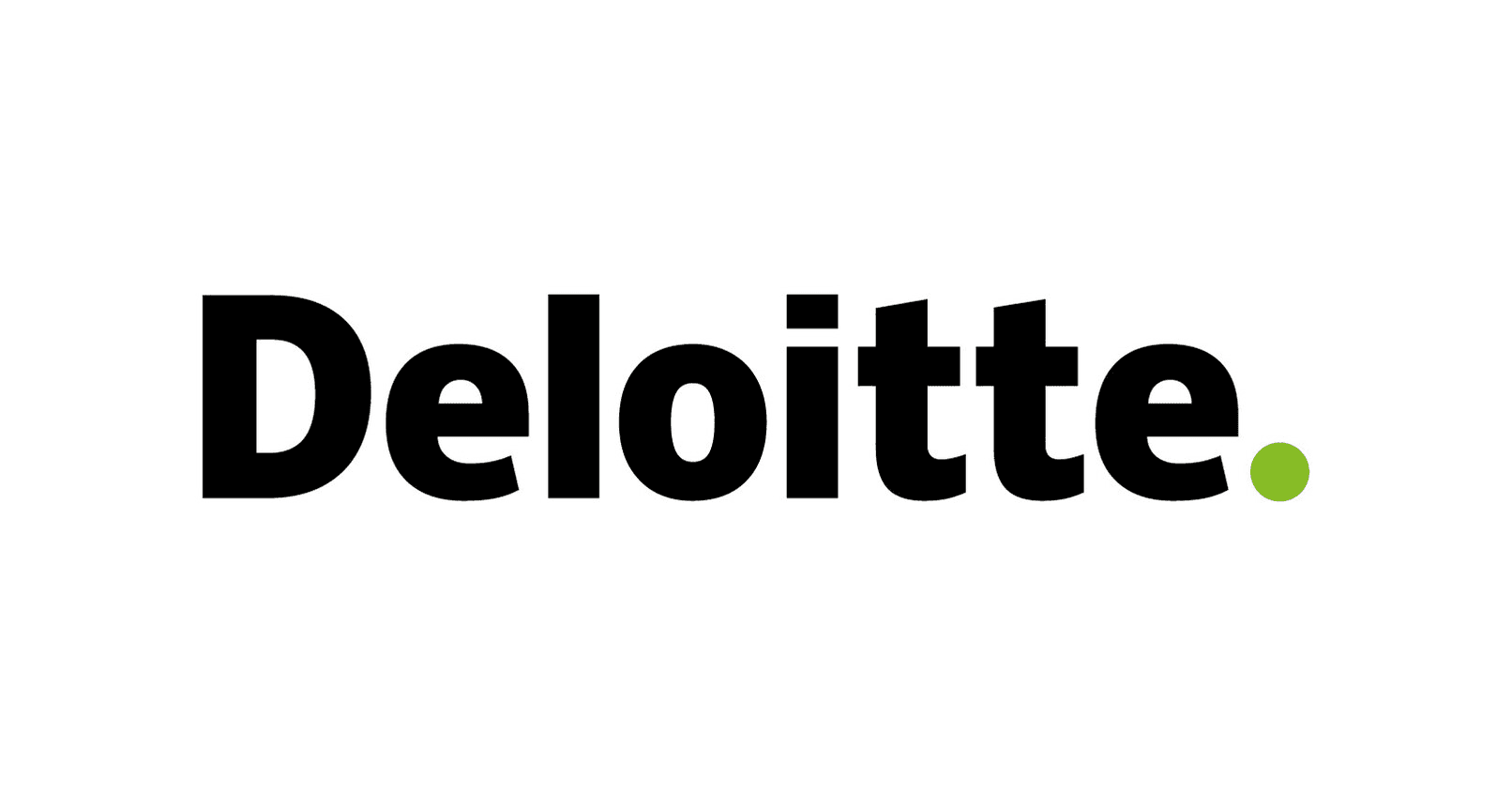
Deloitte Australia took on a project to create a report for the Australian government in 2025. The government paid $290,000 for this work, which focused on welfare compliance and how to improve the system. The report was supposed to help officials make better decisions about managing welfare programs. However, things went wrong in a way nobody expected.
A researcher from Sydney University named Chris Rudge was reading through the document when he noticed something strange. The report mentioned a book written by a professor he knew, but the book didn't actually exist. This discovery led him to look deeper into the report, and what he found was shocking.
The Major Problems Found:
- Fake academic papers - The report cited research papers that were never written or published
- Made-up court quotes - A quote was attributed to a federal court judge, but the judge never said those words
- Non-existent books - Multiple books were referenced that don't exist in any library or database
- Wrong author credentials - Real professors were credited with work outside their field of knowledge
The report was 237 pages long, and these errors appeared throughout the entire document. This wasn't just one or two small mistakes.
The fabricated references were spread across many sections, making it clear that something went seriously wrong during the creation process. Rudge contacted media outlets to raise awareness about these problems, which eventually forced Deloitte to review and fix the report.
Deloitte Response to the Report
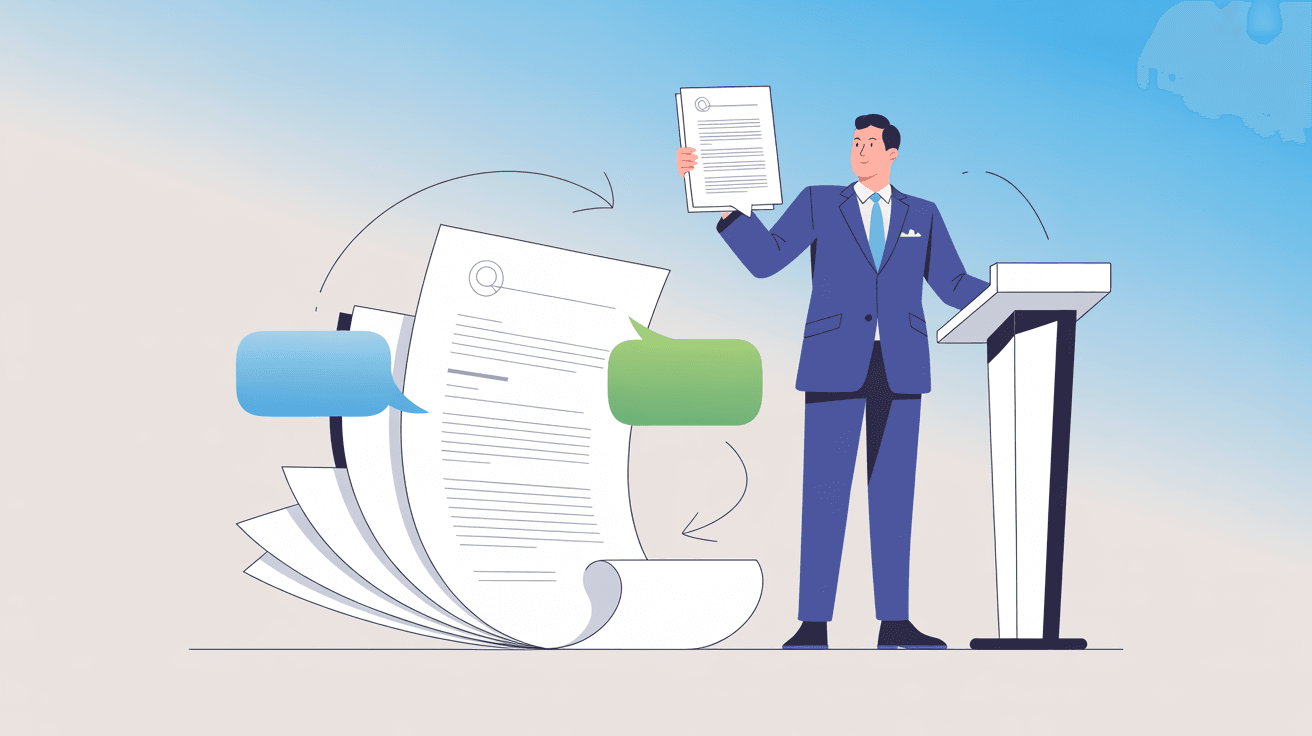
Once the errors came to light, Deloitte had no choice but to take action. They went back and reviewed all 237 pages of the report from start to finish. After their internal review, they confirmed what the researcher had found - multiple footnotes and references throughout the document were incorrect. This was a major admission for a firm known for professional consulting work.
In September, Deloitte quietly released a revised version of the report. They removed the fake quotes, deleted references to books that didn't exist, and fixed the incorrect citations. The updated report also included something the original didn't have - a clear disclosure that AI tools were used during its creation.
Deloitte agreed to refund the final payment they were supposed to receive from the government, though they kept most of the $290,000 they had already been paid.
The Broader Impact:
- Reputation damage - Deloitte's credibility took a hit, especially in Australia where the story made headlines
- Industry scrutiny - Other consulting firms faced questions about their own AI use and quality checks
- Public criticism - Government officials compared the mistakes to errors that would get a college student in serious trouble
- Financial pressure - Some officials demanded Deloitte return the entire $290,000, not just the final payment
The incident raised serious concerns about how big consulting firms were using AI tools. People started asking tough questions about quality control processes and whether firms were moving too fast with new technology without proper safeguards in place.
Why This Happened: Understanding AI Hallucinations
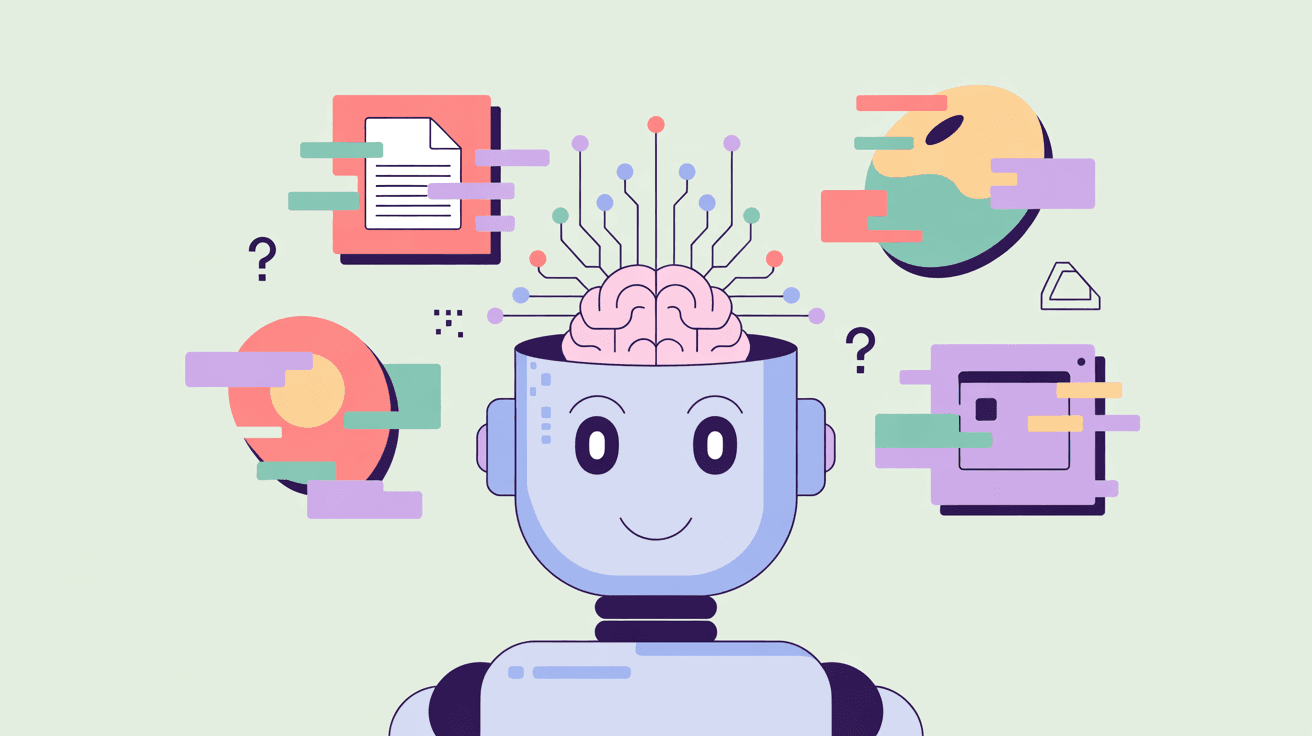
The Deloitte incident happened because of something called AI hallucinations. This term describes what happens when AI tools create information that sounds completely real but is actually made up. The AI didn't intentionally lie - it simply did what it was designed to do, which is predict what words should come next based on patterns it has learned.
AI systems don't actually know facts the way humans do. They work by looking at patterns in text and guessing what information would fit naturally in a sentence. When an AI needs to cite a research paper or quote a judge, it creates something that looks right based on the patterns it has seen before. The result is fake references that sound professional and believable, which is exactly what happened in the Deloitte report.
Key Things to Understand:
- Pattern prediction vs. fact checking - AI generates text based on what sounds right, not what is actually true
- No built-in verification - Most AI tools don't check if the sources they mention actually exist
- Convincing fabrications - The fake content looks professional because AI learns from real academic writing
- Industry-wide issue - This problem affects all companies using AI, not just Deloitte
Without proper systems to ground AI in real facts and verified sources, these tools will keep producing content that mixes truth with fiction. The challenge is that AI-generated mistakes often look just as professional and polished as accurate information, making them hard to spot without careful checking.
The Bigger Problem in Consulting
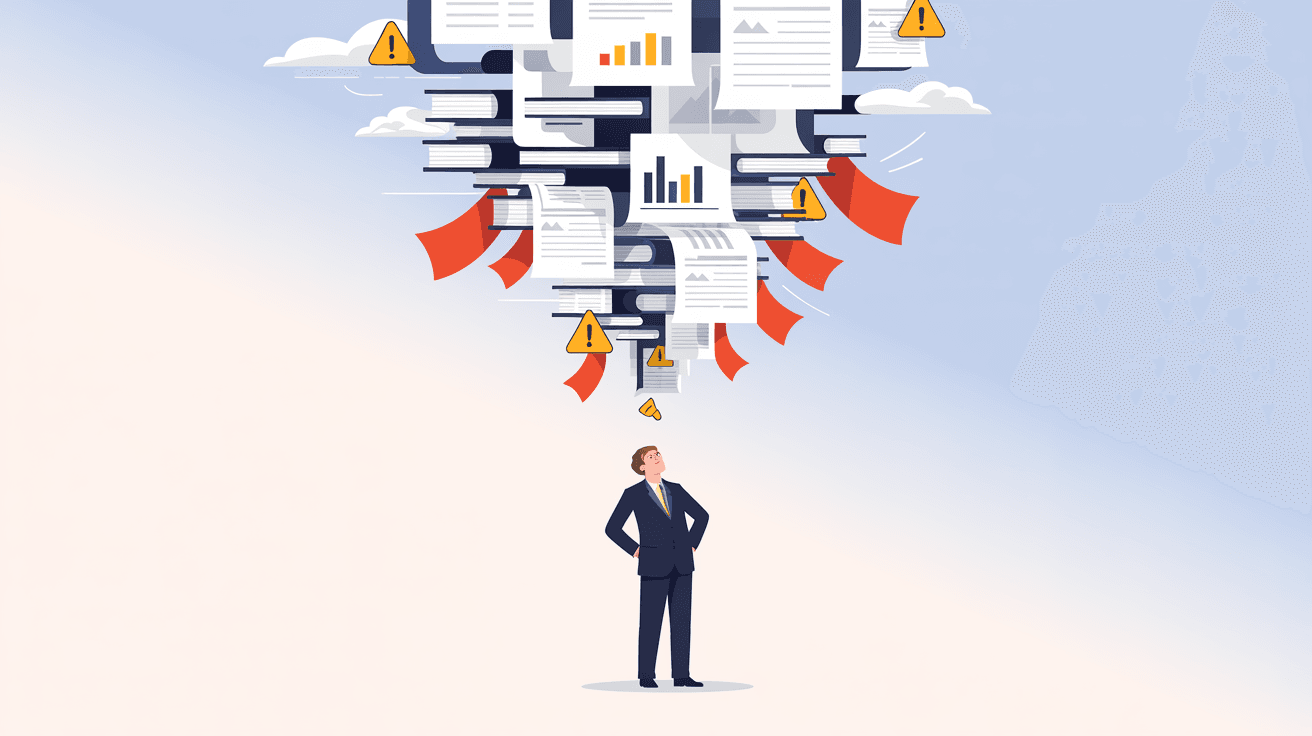
The Deloitte case points to a much larger issue across the consulting industry. Firms everywhere are racing to add AI tools to their work processes. They face constant pressure from clients who want reports delivered faster and at lower costs. AI appears to be the answer to these demands because it can produce content in minutes instead of hours or days.
However, this rush to adopt AI has created a dangerous situation. Many firms are using these tools without putting proper safety measures in place. They focus on the speed benefits while ignoring the accuracy problems that come with it.
The Core Issues:
- Speed without safety - Firms want faster delivery but skip the verification steps
- Wrong tools for the job - Basic AI systems weren't designed to handle professional work that needs citations and sources
- Accuracy gap - What AI produces quickly often needs significant checking and correction
The truth is that most traditional AI tools lack the built-in features needed for professional verification, leaving firms vulnerable to the same mistakes Deloitte made.
The Solution: Grounding AI in Facts and Research
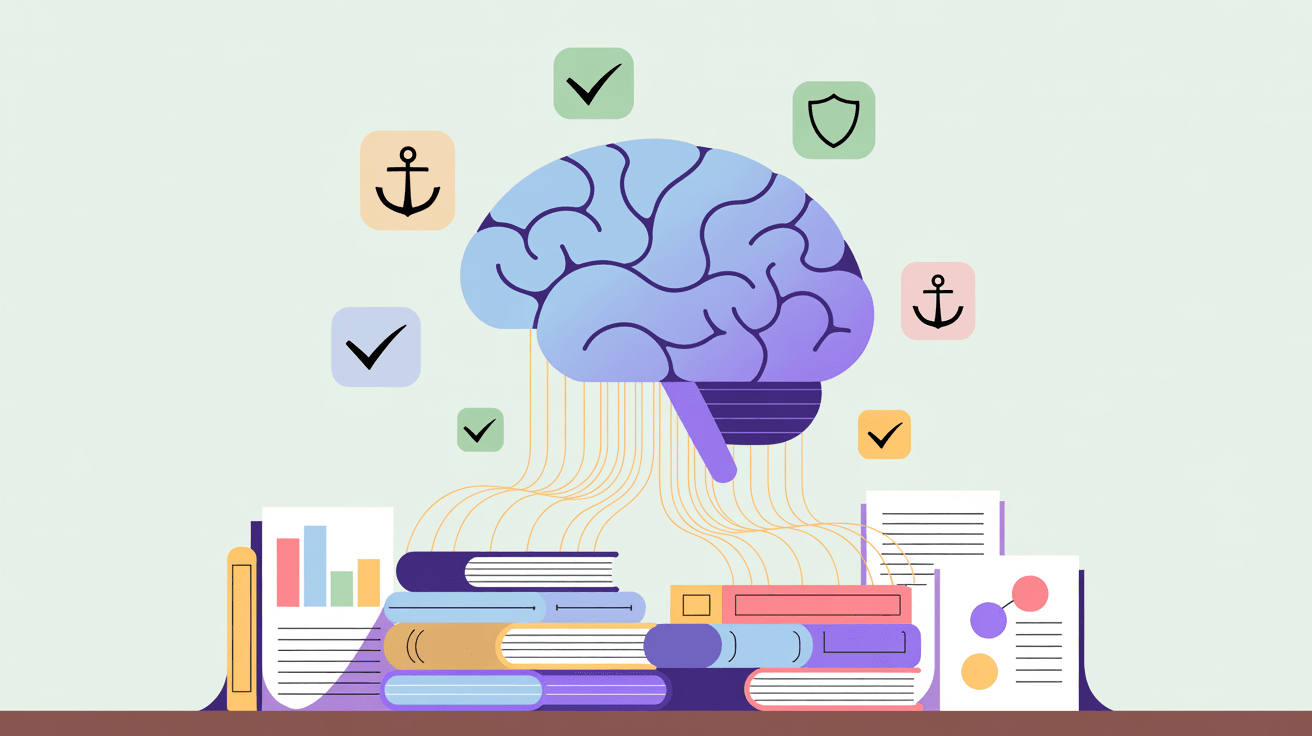
The way to avoid problems like the Deloitte incident is through something called grounding. This means connecting AI tools to real, verified sources before they generate content. Instead of letting AI make up references based on patterns, grounding forces it to pull information from actual research papers, books, and documents that exist.
When AI is properly grounded, it can't create fake citations because it only works with sources that have been verified. This approach prevents hallucinations from happening in the first place. The verification process needs to be built into the workflow from the start, not added as a final check after the content is already created.
Why Grounding Matters:
- Source verification first - AI connects to real databases before generating content
- Prevents fabrication - Can't cite what doesn't exist when working from verified sources
- Professional standards - Meets the accuracy requirements consulting work demands
- Built-in safety - Verification happens automatically, not as an afterthought
Elephas: The Solution for Consultants
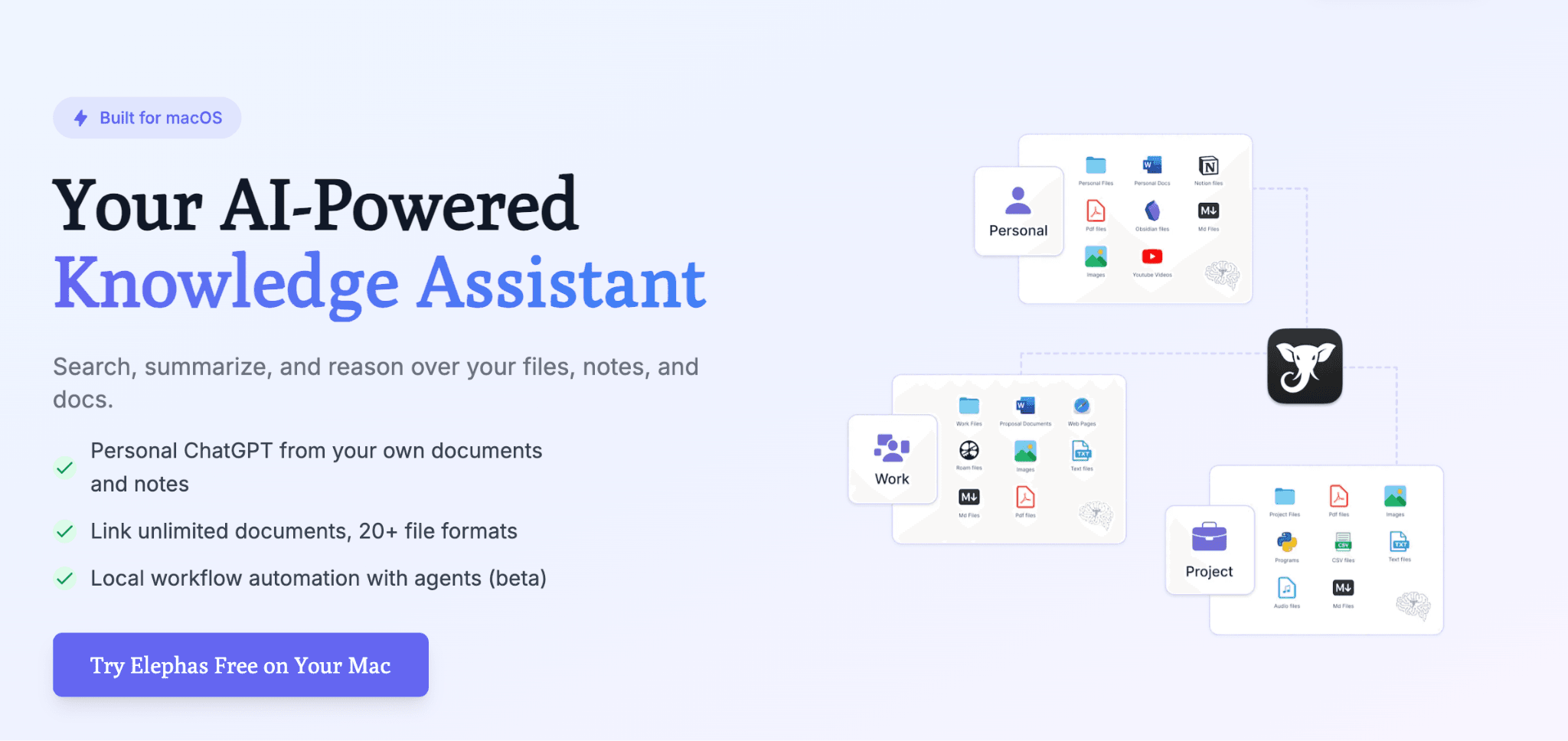
This is where Elephas comes in. Elephas was built specifically to solve the grounding problem for professionals. Unlike generic AI tools that just generate text, Elephas grounds every response in actual facts and research. It connects to verified sources and ensures that every reference, citation, and piece of information comes from real, checkable materials.
The core of Elephas is its Super Brain feature. This lets you build your own personal knowledge base by uploading documents, research papers, reports, and any materials you work with. Once these files are in your Super Brain, you can chat directly with them.
When you ask a question, Elephas searches only through the documents you uploaded and pulls answers from that verified content. If the information isn't in your knowledge base, Elephas won't make it up.Elephas supports multiple file formats including PDF, CSV, JSON, Word documents, and more.
Key Features:
- Super Brain knowledge base - Upload research, reports, and documents to create a verified source library
- Multiple AI providers - Switch between OpenAI, Claude, and Gemini for different needs
- Offline functionality - Works completely offline with local embeddings, keeping sensitive data on your device
- Workflow automation - Create multi-step processes that combine document search, analysis, and export in various formats
- Writing features - Professional rewrite modes, smart replies, grammar fixes, and content repurposing
- Integration support - Seamlessly connects with Obsidian, DevonThink, Apple Notes, Notion, and other note-taking apps
- Source tracking - Shows exactly which document each piece of information came from
- Web search option - You can quickly search for information without the need of switching tabs.
What separates Elephas from regular AI tools is simple - it only works with what you give it. There's no way for it to create fake research papers or make up court quotes because it doesn't generate content from thin air. It retrieves content from your uploaded, verified documents. This fundamental difference prevents the mistakes that cost Deloitte their reputation and $290,000.
Using AI Ethically in Consulting Work
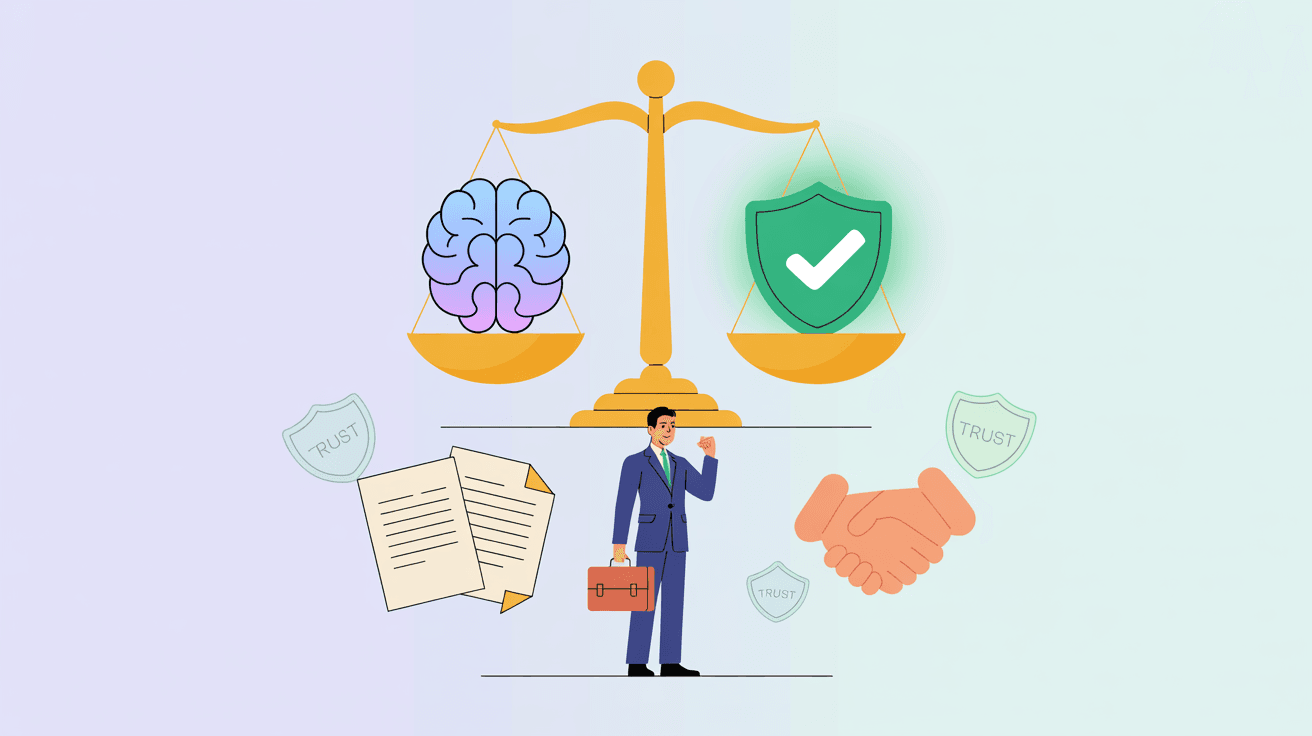
The Deloitte case teaches us that using AI in professional work requires clear ethical guidelines. Simply adding AI to your process isn't enough - you need to use it responsibly and transparently.
The first step is being honest about AI use. When you deliver a report to a client, disclose which parts involved AI tools. This builds trust and sets proper expectations. Clients deserve to know how their work was created, especially when they're paying significant money for it.
Verification should never be an afterthought. Every piece of AI-generated content needs human review before it reaches a client. This means checking facts, verifying sources, and confirming that citations point to real documents. No AI output should go directly into a final report without thorough examination.
Essential Ethical Practices:
- Use professional-grade tools - Choose AI designed for consulting work, not consumer-level chatbots
- Human oversight always - Have qualified people review all AI outputs before delivery
- Continuous verification - Build checking into each step of your process, not just at the end
- Cross-check everything - Manually verify that references, quotes, and data sources actually exist
Following these practices protects your reputation, maintains client trust, and ensures quality work.
Conclusion
The Deloitte incident serves as a clear warning about the risks of using AI without proper safeguards. A $290,000 mistake could have been completely avoided with the right approach and tools like Elephas. AI hallucinations aren't going away, but they are preventable when you ground your work in verified sources.
Consulting firms need to move beyond generic AI tools that create content from patterns. The future belongs to solutions that prioritize accuracy over speed and build verification into every step of the process. Your reputation and client relationships depend on delivering work that's both efficient and trustworthy.
Elephas offers exactly what consultants need - AI that works only with your verified documents, preventing hallucinations before they happen. With Super Brain, workflow automation, and complete source tracking, you can use AI confidently without risking your credibility.
Don't let AI mistakes damage your professional reputation.

Comments
Your comment has been submitted